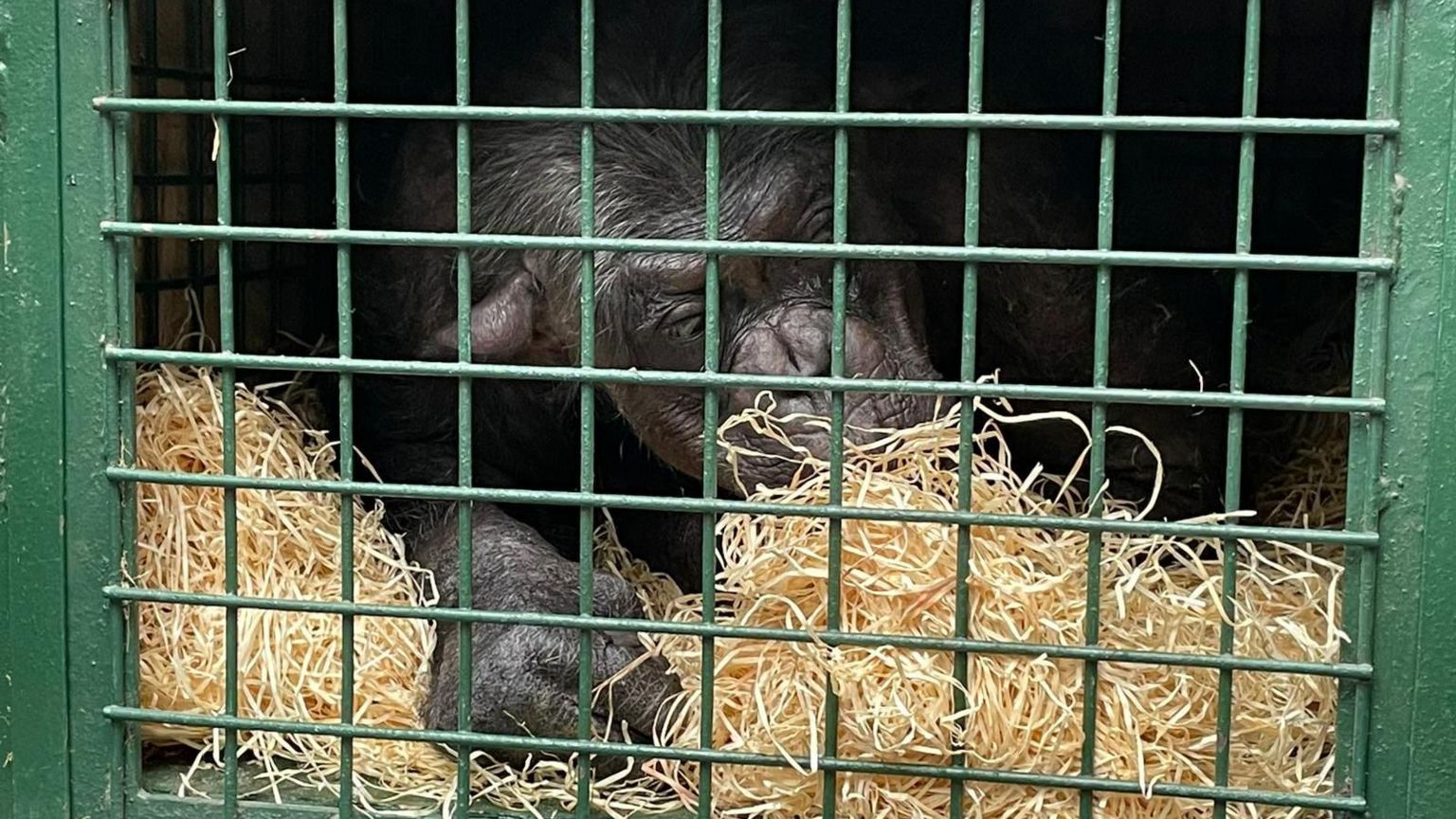Chimp departs zoo for new life in Scotland

Peter was born at Tywcross Zoo but will now live at a safari park
- Published
A 32-year-old chimpanzee has left its home at a zoo and is heading for pastures new in Scotland to enable a breeding programme to get under way.
Peter was born at Twycross Zoo in Leicestershire and had been living alongside another elderly chimp, Tommy, prior to the move.
But with Peter out of the picture, it is hoped Twycross will be able to move forward with its breeding programme by reintegrating Tommy with the troop.
"He [Peter] is a great character to be around - we will miss him," said Jen Bridges, team leader of the zoo's apes.
Jen Bridges has seen Peter daily for seven years
Following a full health check on "cheeky" Peter, he was put in a crate and into a van ready for the long journey up the M6 to Blair Drummond Safari Park near Stirling - with a full lunch box of peppers, sweet potato and pellet.
The move, which had been planned for 12 months, will enable the zoo to reintroduce female chimpanzees into the troop as part of a pan-European breeding programme to help protect and preserve the species.
Tommy will soon be reintegrated with the larger troop of 12 chimpanzees living at Twycross Zoo, including the dominant male, Jambo.
Peter was given a health check before leaving Twycross
Ms Bridges said: "Peter isn't recommended to breed with our troop. It is a really big move but it will be really good for him and will give him self-confidence. He will settle in nicely up there with his mates."
She described Peter as a chimp who kept himself to himself but was very loyal to his fellow troop mates.
“They [the chimps] all have a special place, we see them daily, we see them more than my family," she said.
"I’m sad to see him go but it is the best thing for him and us."
The chimpanzee is currently listed as endangered by the International Union for Conservation of Nature, with numbers continuing to decline across the globe.
In the wild, the species faces significant threats such as poaching, habitat loss and disease.
Follow BBC East Midlands on Facebook, external, on X, external, or on Instagram, external. Send your story ideas to [email protected] , externalor via WhatsApp, external on 0808 100 2210.